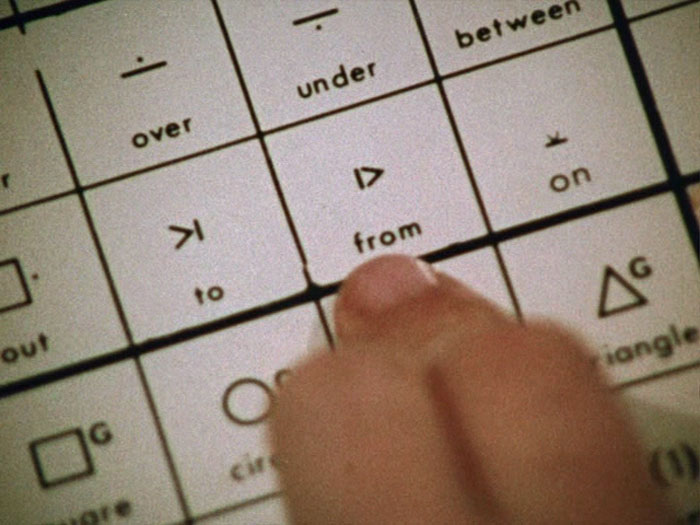
The earliest instance of this quote is found in Virgil‘s Aeneid: “facilis descensus Averno” (the descent to hell is easy).
Fundamentally, it is a quote about inadvertent error – consider cases in which you acted with good intent, but found yourself opposing people in your struggle, or think of times in which you had the backing of everyone that mattered, but still, the end result was not what you desired.
There are four possible scenarios that can unfold after you have decided to act.
Either you will act alone and fail/succeed, or you will act with the backing of the group and fail/succeed. Below are the four cases.
1.The Unfortunate Rebel
You have good intentions, not everyone agrees with you, and your plan does not pan out (because you were lazy or unlucky).
There is a story about a man, Charles Bliss, who wanted to change the way we communicated, because he believed that many of the world’s problems can be traced to the inherent flaws of language.
Bliss thought that language was by its nature deceptive, that people could be fooled into believing dangerous ideas because words lacked precision – a politician could phrase a sentence in a particular way that would make it appeal to a broader group of people, or he could promote racism and mask it by using scientific arguments, veiled in vague, philosophical language.
This concern about semantics is an old one, and many such arguments can be found in An Essay Concerning Human Understanding by John Locke.

Bliss invented a new way of communicating: semantography. Instead of using words to communicate ideas, he would use images – he called it Blissymbolics. He sent letters to governments, hoping that they would adopt his new system, but all his efforts failed.
Then, one day, he learned that that for years, a centre in Canada had been using his symbols to teach children with cerebral palsy to communicate. At first, he was happy, but then was horrified when he learned that his language was being used not as a replacement, but as a bridge to learn traditional languages. He sued the centre and incessantly badgered it, until finally, they came to a compromise with him.
Sometimes, you will do what you believe in, and you will fail. But there is often a silver lining, failures don’t occur without leaving behind some lesson, some boon, that you can make use of. Of course, sometimes they don’t, but in too many cases, the person who fails lacks not the good fortune of succeeding, but the wisdom of learning from what has happened, or simply, to accept the consolation prize.
Charles Bliss couldn’t change the world, but his invention was a steppingstone for children with cerebral palsy – it offered them a new way to learn how to speak their native tongue. But because this consolation victory was not what he originally envisioned (replacing language), he sued the center, and took away funds that would have treated handicapped children.
2. The Idealistic Politician
You have good intentions, everyone agrees they are good, but your plan doesn’t work out.
You can have unanimous support, nothing but tailwind, but due to unforeseen errors along the way, your mission failed.

Webvan was one of the largest dot-com flops in history. It was an online grocery business that filed for bankruptcy in 2001 – after 3 years of operating and was bought out by Amazon.com.
From venture capitalists, Web-van raised more than $396 million, and they raised an additional $375 million in an initial public offering. This was a company that seemed destined for greatness, but they crashed badly – their downfall could be attributed to overzealous investors who wanted the company to gain first-mover advantage. Webvan, at its peak in 2000, had $178 million in sales but $525 million in expenses.
When you have the backing of everyone, and you still fail, it may be the most bewildering of all scenarios. Here is a case where everyone around you told you that you had the right idea, and years later, you come to realize that either it wasn’t the right idea, or you weren’t the right person for it.
Like any failure, there will be lessons learned from it. But the drawback is that your ‘safe’ option of relying on the feedback of others ceases to become reliable. Your worldview changes, and now you are forced to think far more independently. The danger here is that you become too antagonistic towards the opinions of others in the future. It is easy to overreact and to stop trusting people when they have disappointed you, but of course, the problem was not that they didn’t give you the right information, but that you had the wrong expectations.
It is smart to never trust anyone blindly, even if they were an investor pumping in over a hundred million dollars into your company. When your cognitive apparatus becomes secondary in dealing with the decisions you must make, you become defenceless.
3. The Well-meaning Villain
You have good intentions, not everyone agrees, your plans do pan out.

The Unabomber warned people about how technology was crippling society, how we have turned into a world of robots, mindlessly stopping at red lights, consulting our computers for everything, and replacing all forms of human connection with automation.
The industrial-technological system may survive or it may break down. If it survives, it MAY eventually achieve a low level of physical and psychological suffering, but only after passing through a long and very painful period of adjustment and only at the cost of permanently reducing human beings and many other living organisms to engineered products and mere cogs in the social machine.
Industrial Society and its Future, Ted Kaczynski
Building on the ideas of Jacques Ellul’s The Technological Society, Ted Kaczynski (The Unabomber), thought that technology operated independently of people, that its purpose was to replicate itself ad infinitum, and that as human beings, we were merely victims who had no choice but to go along, and to accommodate its rapid expansion at our own expense.
The insidious thing here is that there is no conspiracy, there is no one at the top who is trying to manufacture this dystopic reality.
The progress of the technological system is an inevitable result. Technology is simply a more efficient way of doing something, it need not be electronic. A written work that improves how we do something can be considered technological. Because of the incentives in place, we will not discontinue research into technological advancement – we need to constantly find more efficient ways of doing something. As a result, our lives will continue to become more automated, and we will continue to lose more of our humanity and free will. This is a perfectly reasonable argument.
Ted Kaczynski took the argument to a conclusion that only he believed in. He thought that the only solution was to destroy the system altogether – his intention was to stop technological growth, and restart the human experiment from scratch.
If the system breaks down the consequences will still be very painful. But the bigger the system grows the more disastrous the results of its breakdown will be, so if it is to break down it had best break down sooner rather than later.
Industrial Society and its Future, Ted Kaczynski
He managed to destroy the lives of families, did nothing to slow down the progress of technology, and got a lot of people worried about opening their mail.
The Joker in The Dark Knight had the same intention – both characters see that the system, while being orderly and functional, is at its root broken. Their solution is to throw the system into chaos, so that its hypocrisies and vulnerabilities are exposed, but chaos is not guaranteed to improve the situation – it can make things worse. Often what happens is that the system survives but innocent individuals suffer.
The Soviet experiment is the most famous political example that fits here, its leaders outlined a need for egalitarianism, a virtuous goal, but the result was the Gulag – millions of deaths, displaced landowners, wars, and destruction.
4. The Huxley Paradox
You do what you think is right, everyone agrees with you, you get what you want.
An example is the dystopic vision of Brave New World, where everyone is hooked on Soma (a drug without side effects) – pleasure is constantly experienced, but people’s lives are meaningless. It is difficult to argue against a life without suffering and pain, yet it may be a life not worth living.
Imagine a more personal example, where you choose to live a hedonistic life, where you give no regard to anything that does not bring you immediate pleasure.
For you, hard work and discipline are only a waste of time, distractions from more worthwhile pursuits. You may embrace this lifestyle, and since you are not harming anyone, you will not find any opposition, and yet you are making an error.
And this is the most dangerous form of error, because there is the least amount of cognitive dissonance. The social current is moving in your preferred direction, everything is going according to plan, yet it is taking you downhill. The relationship could be with friends, or it could be an intimate relationship, where you think that your collectively constructed paradise contains the keys to your happiness only to discover the opposite in the end. Or one with your employers where you believed that a relationship of mutual benefit and trust could be forged, but ultimately, it was one of deceit.
Your perception of reality, whatever it is, can easily be mistaken – even if others don’t point it out for you. This is the proverbial blind spot.
Whenever people cast doubt on your behavior, you are forced to review your actions and think more deeply about them – at least if you are sensible. But when you are not opposed by anyone, then you will feel unobstructed from pursuing your goal – as misguided as it may be.